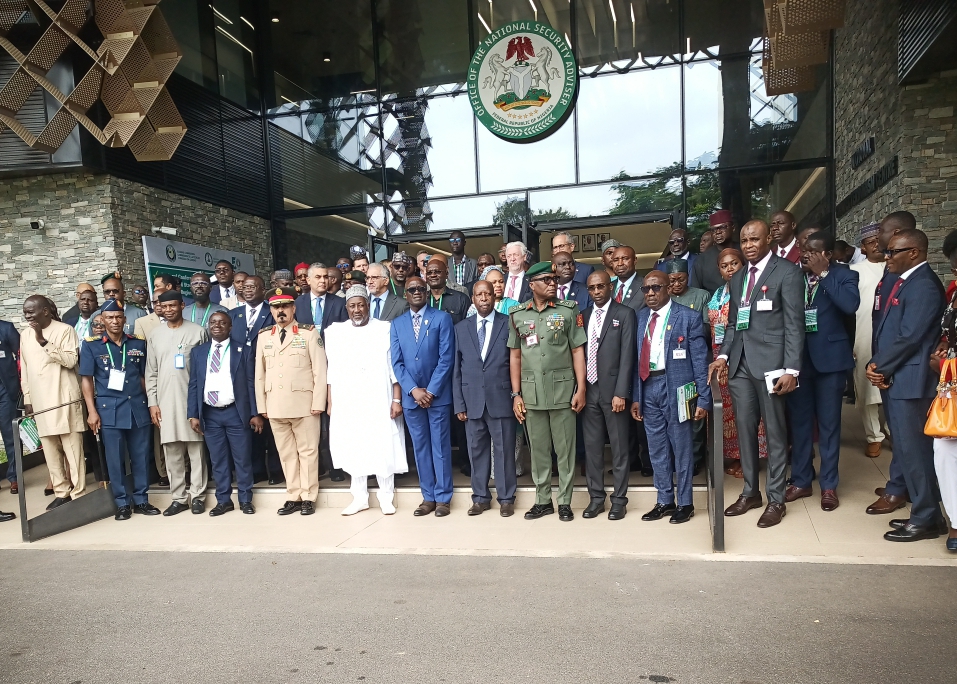By Sumaila Ogbaje
The Minister of Defence, Alhaji Mohammed Badaru, has said that while military forces were essential for combating insurgency, they alone are insufficient to deliver sustainable peace in West Africa and the Sahel.
Badaru stated this on Wednesday in Abuja at the opening of the Regional Conference on Combating Emerging Terrorist Groups and Strengthening Sustainable Security in the ECOWAS and Sahel Region, organised by the National Counter Terrorism Centre (NCTC).
He said the region must look beyond battlefield victories to address the root causes of radicalisation such as poverty, unemployment, exclusion and weak governance.
According to him, extremist groups thrive in environments where grievances are left unaddressed and institutions are either weak or absent.
“The task before us is clear. We must combine military strength with governance reforms and socio-economic development.
“Winning the hearts and minds of our populations will deny extremist groups the local support they seek to exploit.
“Military force is necessary but not sufficient. Investing in education, strengthening community resilience, and ensuring good governance are equally critical to our long-term security,” he said.
The minister urged ECOWAS member states to prioritise intelligence integration, joint military operations, and socio-economic interventions to effectively counter terrorism in the region.
He also called for the operationalisation of the ECOWAS Standby Force, establishment of a regional counterterrorism task force, and stronger legal frameworks to deny terrorists safe havens.
Badaru further applauded President Bola Tinubu’s leadership, noting that Nigeria had taken bold steps through joint operations across the North East, North West, and North Central, as well as support for the Multinational Joint Task Force in the Lake Chad Basin.
He said initiatives like Operation Safe Corridor, which rehabilitates and reintegrates repentant insurgents, had contributed to breaking the cycle of violence and rebuilding trust within communities.
The minister also commended the contributions of international partners including the UN, AU, EU, U.S. and U.K., stressing that deeper collaboration was needed to fund intelligence platforms, support ECOWAS standby operations, and sustain socio-economic programmes.
“The fight against terrorism is not only a battle for security. It is a struggle for the very future of our societies. The choices we make today will determine whether we secure a future of peace, stability and prosperity for our region,” he said.
In his remarks, The Chief of Defence Staff (CDS), Gen. Christopher Musa, said that military victories alone would not guarantee lasting peace in the fight against terrorism and violent extremism in West Africa and the Sahel.
Musa, represented by the Chief of Defence Operations, Maj.-Gen. Emeka Onumajuru, said terrorist groups across the region were exploiting porous borders, ungoverned spaces, and local grievances to spread instability.
He added that their operations—from kidnappings and banditry to radicalisation and illicit trafficking—posed grave threats to collective security.
“For Nigeria, the Armed Forces have been at the forefront of this fight.
“From counterterrorism operations in the North East to tackling banditry in the North West and violent extremism in the North Central, our troops continue to make sacrifices to safeguard lives and stability.
“Beyond our borders, Nigeria remains committed to multinational efforts through the Multinational Joint Task Force, ECOWAS and African Union frameworks,” he said.
The CDS stressed that regional solidarity and whole-of-society approaches were essential to defeating terrorism, noting that “battlefield victories are necessary but not sufficient.”
According to him, sustainable security must combine kinetic operations with non-kinetic measures such as counter-radicalisation, peacebuilding, civil-military cooperation and humanitarian support.
Musa recalled that Nigeria just held the recent first-ever African Chiefs of Defence Staff Conference, where military leaders across the continent agreed that Africa’s security challenges required African-led solutions anchored on trust, solidarity and partnership.
He expressed optimism that the ongoing conference would build on that momentum by harmonising doctrine, strengthening interoperability and translating shared vision into concrete actions against terrorism.
He commended ECOWAS and Nigeria’s National Counter Terrorism Centre for convening the conference, while welcoming participants and partners from across the region and beyond. (NAN)
